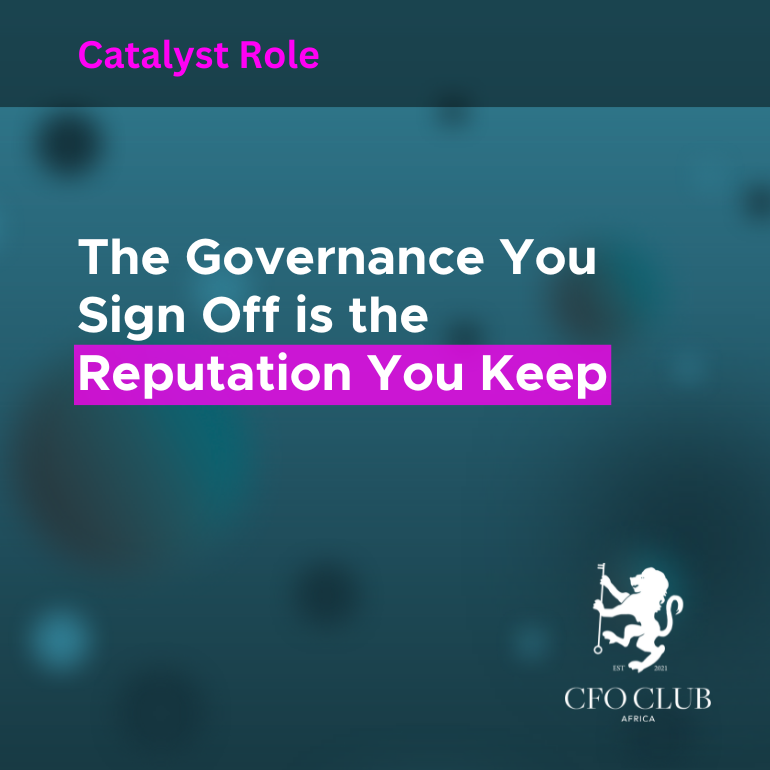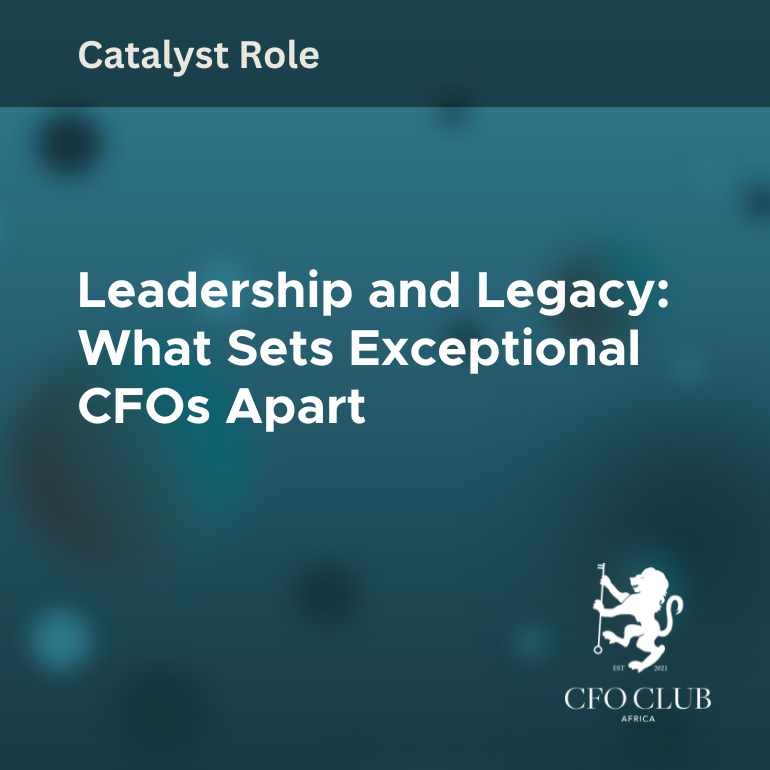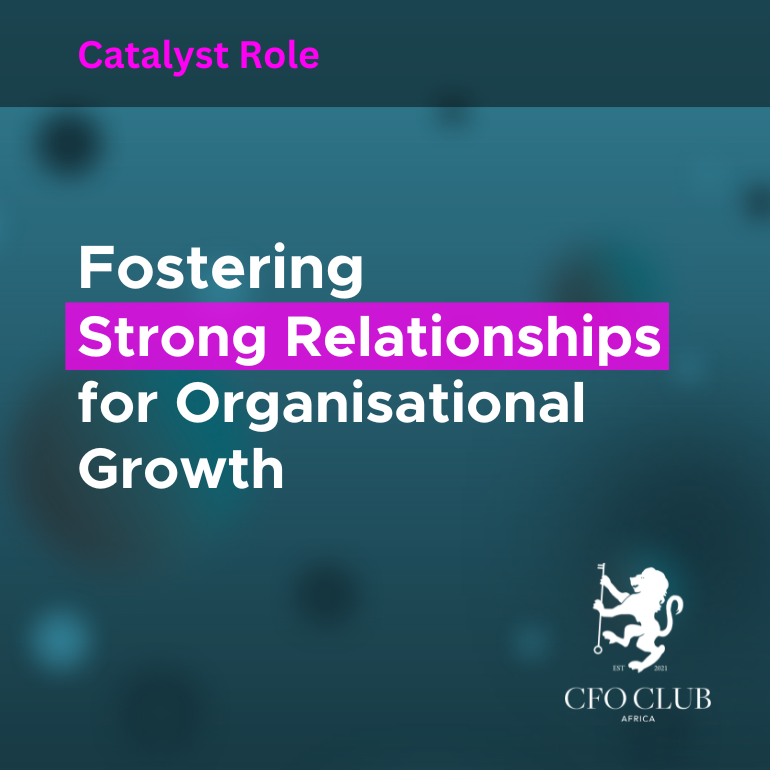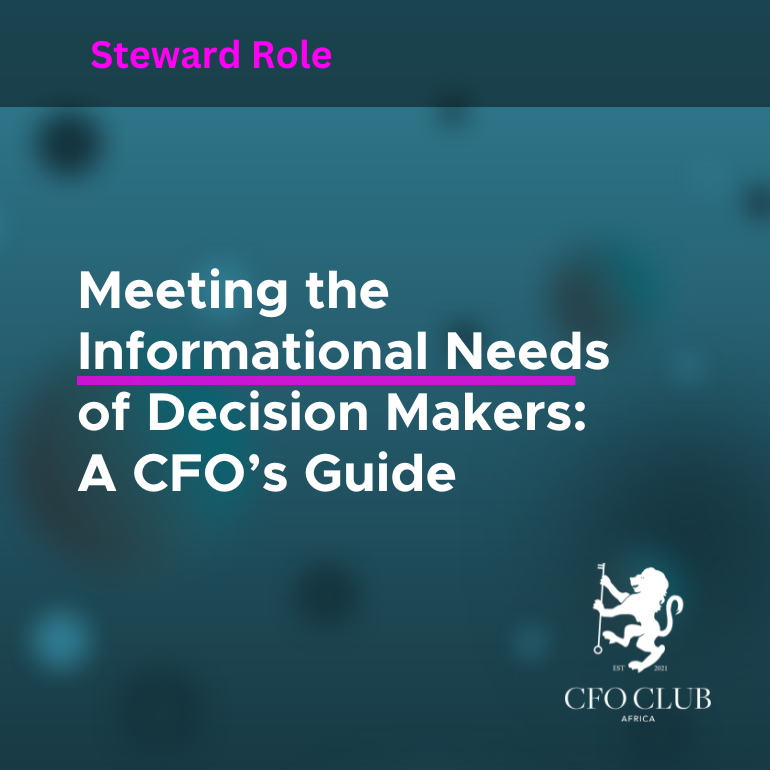The Governance You Sign Off is the Reputation You Keep
The Governance You Sign Off is the Reputation You Keep
Forget the window dressing. Corporate governance isn’t a box-ticking exercise, it’s your company’s risk firewall, your stakeholder credibility engine, and your personal liability shield.
As a CFO, you’re not just crunching numbers. You sit at the intersection of finance, ethics, regulation, and performance. When governance goes wrong, the fallout lands on your desk—fast. So, what does good governance really mean, and how can you leverage it not just for compliance, but for control, credibility, and competitive edge?
Beyond the Boardroom: What Governance Really Looks Like
Good governance doesn’t start and end with your annual board calendar or the independence of your audit committee. It’s embedded in the decisions you make daily, how forecasts are drawn up, how risks are flagged (or not), how whistleblowers are treated, and how openly performance is reported.
Governance is a system, not a document. It’s about aligning leadership behaviour with company purpose, structuring accountability lines, and creating visibility into how decisions are made—and why.
King IV gets this right. It shifts governance from compliance to outcomes. It asks, not “Did you comply?” but “Did it work?” And that question lands squarely on your lap.
The CFO’s Governance Agenda: Three Strategic Priorities
1. Transparency: Financials That Speak Clearly Transparency isn’t about dumping data into the integrated report. It’s about contextual disclosure. Are your financial statements telling a coherent, credible story? Are your assumptions around future cash flows, impairments, or provisions aligned with business realities—or are they being “massaged” to meet targets?
The best CFOs use transparency as a credibility lever. You’re not just reporting performance, you’re owning it. That gives you leverage in investor discussions, funding rounds, and stakeholder trust.
2. Accountability: Lines That Hold Weak accountability systems collapse under stress. Who signs off on financial models? Who monitors debt covenants? Who reviews internal control breaches?
You need structures where accountability is active, not assumed. This includes:
- Regular control reviews and exception reporting
- Clear audit trails (especially for revenue recognition and estimates)
- Robust delegation frameworks that don’t diffuse responsibility
If there’s ever a forensic investigation, your governance record should speak before you do.
3. Ethical Culture: Your Real Internal Control Culture eats policy for breakfast. Ethical culture isn’t about a framed code on the wall, it’s how your finance team behaves when no one is looking. It’s whether bad news is buried or surfaced. It’s how procurement gets done. It’s whether junior staff can challenge seniors.
Your role? Model ethical behaviour. Build reporting lines that protect whistleblowers. Reward truth-telling, not just performance. Governance isn’t just the CEO’s job—it’s lived in the numbers you approve and the people you lead.
When Governance Fails, CFOs Pay the Price
From Steinhoff to Tongaat, we’ve seen what happens when transparency and accountability are treated as afterthoughts. Inflated earnings, non-disclosures, audit failures—every one of them passed through a CFO’s hands.
And while boards may face reputational fallout, CFOs face personal liability, career damage, and legal exposure.
The Companies Act (and increasingly, the regulators) see the CFO as a fiduciary—not just an employee. Fail to escalate a risk? Misstate cash flow positions? Sign off misleading reports? You could face fines, bans, or worse.
Governance as Strategy: Not Just Defence, But Offence
Strong governance isn’t just about avoiding disaster, it’s a strategic asset. Companies with clear governance structures attract better funding terms, secure supplier trust faster, and face lower compliance costs over time.
As a CFO, governance can be your differentiator:
- Use internal audit as a strategic tool, not just a compliance obligation.
- Map financial risks against operational exposure and ESG priorities.
- Lead integrated reporting that connects numbers to purpose.
This positions you as a governance leader, not just a gatekeeper.
The South African Lens: King IV, Companies Act, and Liability
South Africa is ahead of many global peers in governance thought leadership, but implementation lags. King IV encourages transparency, ethical leadership, and stakeholder inclusivity—but many companies still treat it as PR instead of practice.
The Companies Act of 2008 strengthens this by imposing duties on directors and prescribed officers (including CFOs). These include:
- Exercising reasonable care, skill, and diligence
- Avoiding conflicts of interest
- Acting in good faith and in the best interests of the company
Ignore these, and “I didn’t know” won’t hold up.
Five Signs Your Governance Framework Needs a Rethink
- Your risk register hasn’t been updated in six months
- No one owns your non-financial KPIs
- Audit committee meetings are perfunctory or poorly documented
- There’s no internal whistleblowing mechanism—or it’s ignored
- Your board packs focus on past numbers, not forward-looking risk
If any of these sound familiar, the cracks are showing.
Final Word: Governance Isn’t a Cost—It’s a Value Multiplier
Transparency and accountability are more than regulatory obligations. For a modern CFO, they are the foundation of strategic credibility, investor confidence, and long-term sustainability.
Governance done right gives you control, protects your career, and unlocks future growth.
So the next time someone calls governance “soft stuff”, remind them—it’s the sharp edge that keeps everything else from bleeding out.





